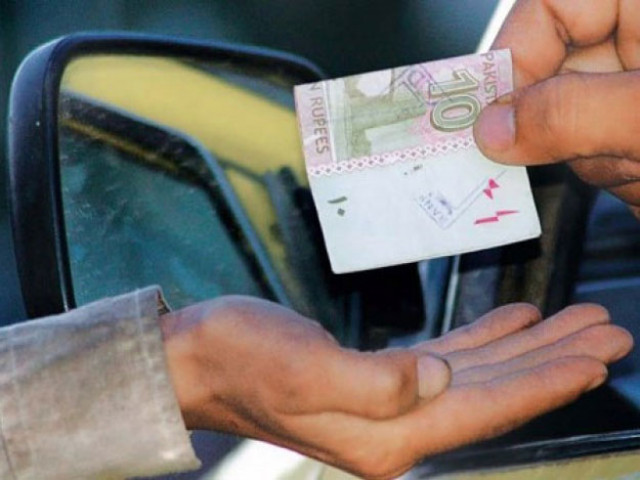Meet Sindh’s millionaire beggars
Many travel in cars or motorcycles during the harvest season to reap the benefits of others' hard work

PHOTO: EXPRESS
Every day these paradoxically wealthy beggars visit different villages and beg farmers and landowners for harvested grain. There are two kinds of people who visit these areas every year to beg - some come with requests for help while others call themselves ‘Syeds’ and ask for contributions. This practice is not confined to a particular caste or religion - Muslims, non-Muslims and people from various tribes and communities have made this their source of income.
Rahib Shah, a 75 year old man who lives in Larkana city, used to visit villages on foot and collect harvested grains. He now has purchased a mini-jeep and travels with three ‘helpers’ to help him collect the rice and transport it to a storage facility he built in the area. "What can we do? He calls himself a Syed so we give him [donations] in the name of the descendants of the Holy Prophet (pbuh) who laid down their lives for our religion," explained Mohammad Panah, a resident of Boohar village in Larkana. Rahib is not the only one to operate in the area – dozens of others wander around in the winter season to beg.
Shankar, 57, a scheduled caste Hindu who started begging when he was a teenager, now owns a three-storey building in Bagri Muhalla, Larkana in which he has rented out five shops. He and his wife travel around during harvesting season on a motorcycle and ask farmers for grains.
CPWB rescues 76 children from begging
"He is the richest person in his entire family, but has not given up his habit of begging," said Rizwan Ahmed, a local resident. "The couple embarks on their journey and spends the entire day wandering from village to village before coming home at sunset.” Ahmed added that they have built storage units where they store the harvested grain and later sell it. Begging is, however, a crime and Section 7 (1) of the Vagrancy Act 1958 says, “The police, without an order from a magistrate and without a warrant, can arrest and search any person who appears to him to be a vagrant.” The Sindh Children Act, 1955 also bans children beggars. “Under this law a maximum punishment for children begging forcibly or willingly is one year with a fine,” said Iqbal Detho, a civil society activist who has worked on this issue extensively. According to sociologists, however, there are a number of factors behind begging.
"There are organised gangs of beggars while others are forced to beg because of land fragmentation, poverty and a lack of resources to earn a livelihood," said Detho. "In towns and cities, begging has turned into an organised business. Some gangs deploy their members in specific locations that are leased out for a specific time," he explained. "There was a time when people in rural areas used to spare a share of their crop yield for Syeds, but this trend is fading away with each passing day. No popular gadi or Syed family follows the trend anymore because they are now [involved in politics] and have become rich,” he said. Detho added that some splinter groups and other Syeds still follow the tradition. According to him, donkey carts and horse carriages were the earlier modes of transport but recently they have started travelling in motorised vehicles.
KU students take slum children off the streets and into the classroom
Hasan Manghanhar, a beggar who lives in Larkana city, said that begging is a profession they have inherited from their forefathers. "Four of us [family members] go out to beg and bring back a sum that is enough to run our kitchen," he said, adding that begging is not as easy as others think it to be.
"People don't give money unless you know the way to get it out of them,” he explained, adding that even beggars have to work hard to meet their targets. "I prefer to stay in the city and earn hardly Rs500 to Rs1,000 per day," said Manghanhar, adding that many of his relatives have become millionaires from begging yet they still beg. "Once you start, it is difficult to give up this profession," he said.


1724319076-0/Untitled-design-(5)1724319076-0-208x130.webp)
















COMMENTS
Comments are moderated and generally will be posted if they are on-topic and not abusive.
For more information, please see our Comments FAQ